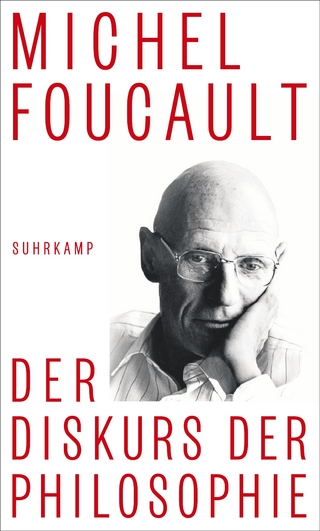
Trauma and the Ontology of the Modern Subject
Historical Studies in Philosophy, Psychology, and Psychoanalysis
Seiten
2017
Routledge (Verlag)
978-1-138-82672-4 (ISBN)
Routledge (Verlag)
978-1-138-82672-4 (ISBN)
Recent scholarship has inquired into the socio-historical, discursive genesis of trauma. Trauma and the Ontology of the Modern Subject, however, seeks what has not been actualized in trauma studies – that is, how the necessity and unassailable intensity of trauma is fastened to its historical emergence. We must ask not only what trauma means for the individual person’s biography, but also what it means to be the historical subject of trauma. In other words, how does being human in this current period of history implicate one’s lived possibilities that are threatened, and perhaps framed, through trauma? Foucauldian sensibilities inform a critical and structural analysis that is hermeneutically grounded.
Drawing on the history of ideas and on Lacan’s work in particular, John L. Roberts argues that what we mean by trauma has developed over time, and that it is intimately tied with an ontology of the subject; that is to say, what it is to be, and means to be human. He argues that modern subjectivity – as articulated by Heidegger, Levinas, and Lacan – is structurally traumatic, founded in its finitude as self-withdrawal in time, its temporal self-absence becoming the very conditions for agency, truth and knowledge. The book also argues that this fractured temporal horizon – as an effect of an interrupting Otherness or alterity – is obscured through the discourses and technologies of the psy-disciplines (psychiatry, psychology, and psychotherapy). Consideration is given to social, political, and economic consequences of this concealment.
Trauma and the Ontology of the Modern Subject will be of enduring interest to psychoanalysts and psychotherapists as well as scholars of philosophy and cultural studies.
Drawing on the history of ideas and on Lacan’s work in particular, John L. Roberts argues that what we mean by trauma has developed over time, and that it is intimately tied with an ontology of the subject; that is to say, what it is to be, and means to be human. He argues that modern subjectivity – as articulated by Heidegger, Levinas, and Lacan – is structurally traumatic, founded in its finitude as self-withdrawal in time, its temporal self-absence becoming the very conditions for agency, truth and knowledge. The book also argues that this fractured temporal horizon – as an effect of an interrupting Otherness or alterity – is obscured through the discourses and technologies of the psy-disciplines (psychiatry, psychology, and psychotherapy). Consideration is given to social, political, and economic consequences of this concealment.
Trauma and the Ontology of the Modern Subject will be of enduring interest to psychoanalysts and psychotherapists as well as scholars of philosophy and cultural studies.
John L. Roberts, Ph.D., is Assistant Professor of Psychology in the Department of Psychology, University of West Georgia. His research interests include theoretical and philosophical approaches to psychology, histories of consciousness and subjectivity, and psychoanalysis.
Introduction 1: SUBJECTIVITY, FINITUDE, & TEMPORALITY 2: TRAUMATIC ONTOLOGY 3: TRAUMA & TECHNOLOGY 4: TRAUMA, SUBJECTIVITY, & BIOPOLITICS CONCLUSION Afterword: PSYCHOANALYTIC POSTSCRIPTS: SCIENCE, THE SUBJECT, AND HYSTERIA by Kareen R. Malone
| Erscheinungsdatum | 30.01.2018 |
|---|---|
| Verlagsort | London |
| Sprache | englisch |
| Maße | 156 x 234 mm |
| Gewicht | 476 g |
| Themenwelt | Geisteswissenschaften ► Philosophie ► Philosophie der Neuzeit |
| Geisteswissenschaften ► Psychologie ► Psychoanalyse / Tiefenpsychologie | |
| Medizin / Pharmazie ► Medizinische Fachgebiete ► Notfallmedizin | |
| Medizin / Pharmazie ► Medizinische Fachgebiete ► Psychiatrie / Psychotherapie | |
| Sozialwissenschaften | |
| ISBN-10 | 1-138-82672-3 / 1138826723 |
| ISBN-13 | 978-1-138-82672-4 / 9781138826724 |
| Zustand | Neuware |
| Informationen gemäß Produktsicherheitsverordnung (GPSR) | |
| Haben Sie eine Frage zum Produkt? |
Mehr entdecken
aus dem Bereich
aus dem Bereich


